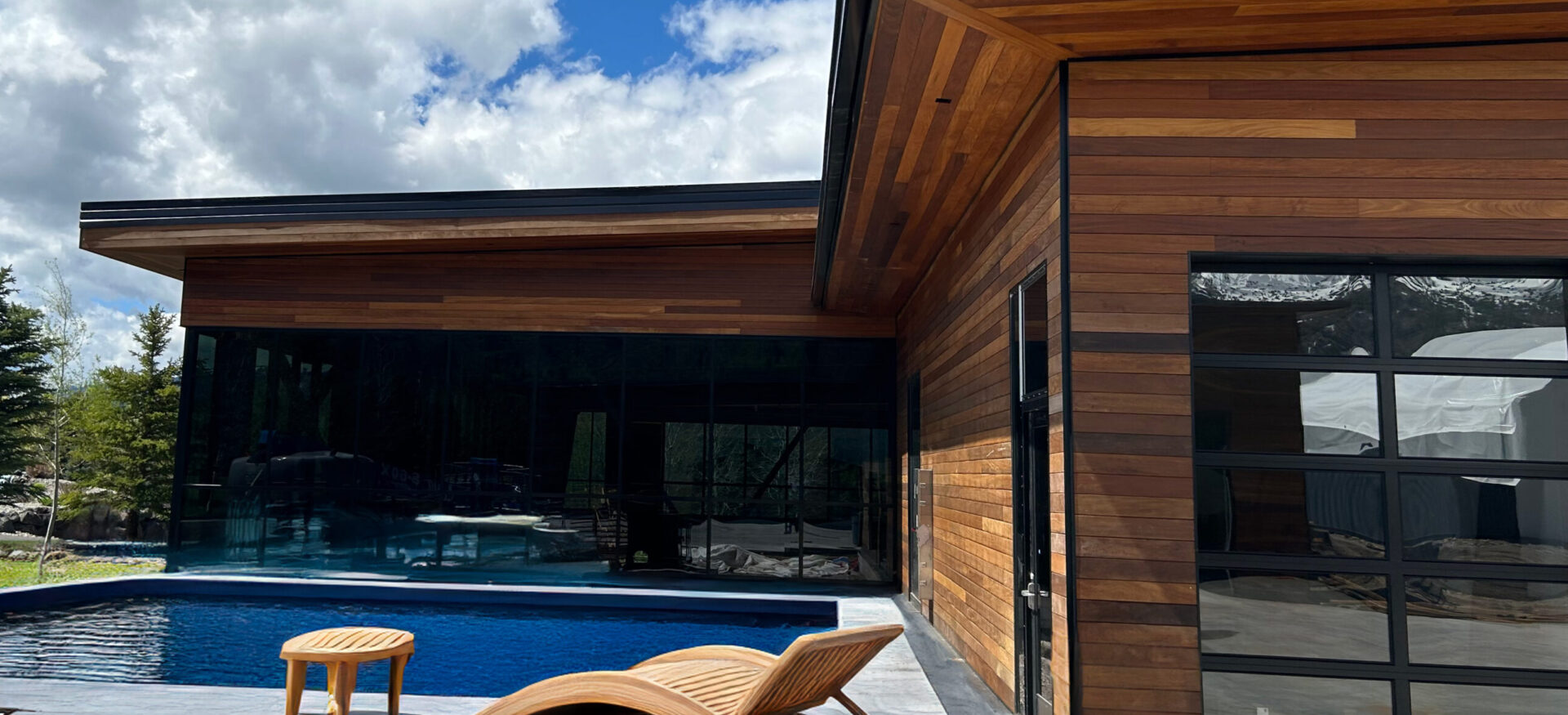Cumaru
AKA Brazilian Teak
Dipteryx odorata
Cumaru Decking
Cumaru is a South American hardwood that is excellent for decking. It is extremely hard and rot resistant, and one can expect at least a 25 year lifespan when used for your deck. Those same characteristics make Cumaru just an outstanding exterior species in general. We supply it to customers for siding, soffits, or other architectural millwork like rafter tails and railings, etc. Recently we have been using it in larger timber sizes in special cases for posts, pergolas, etc.
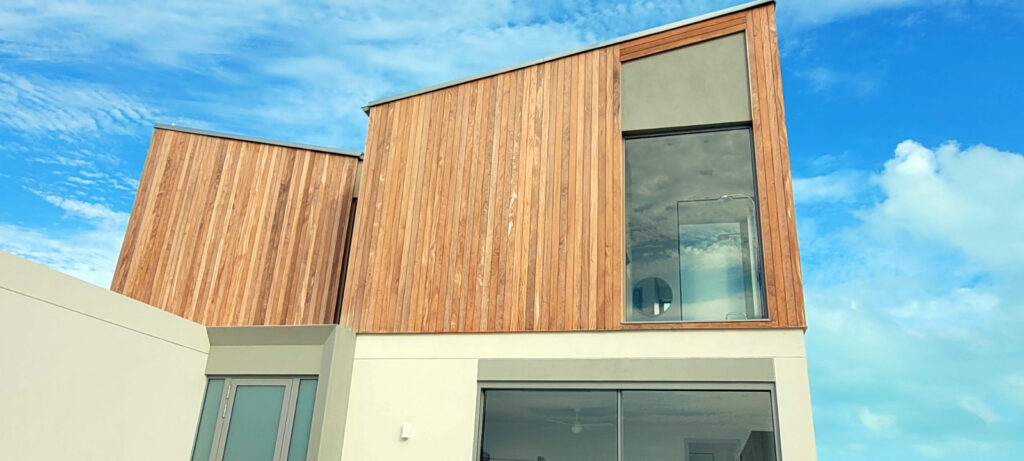
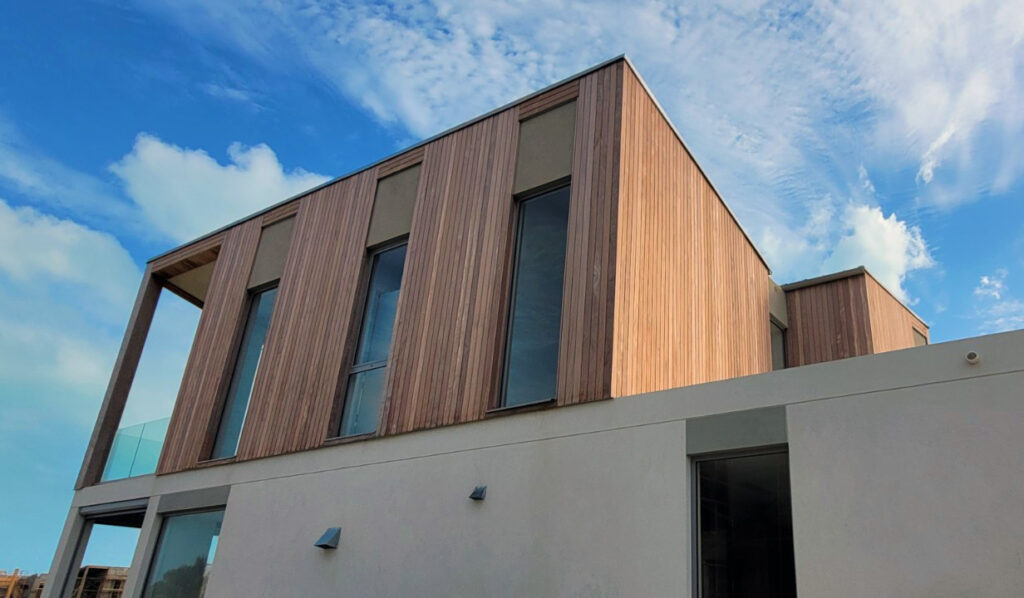
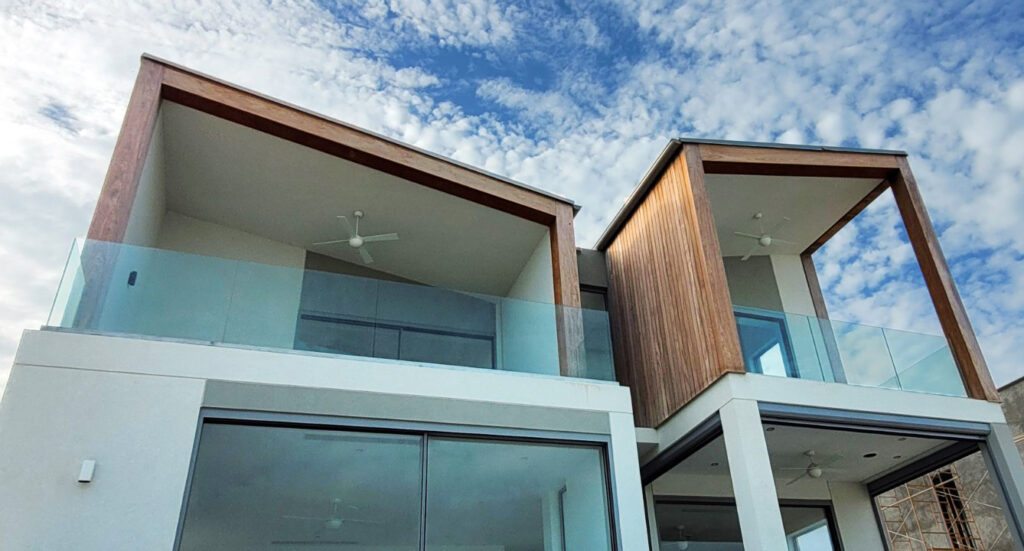
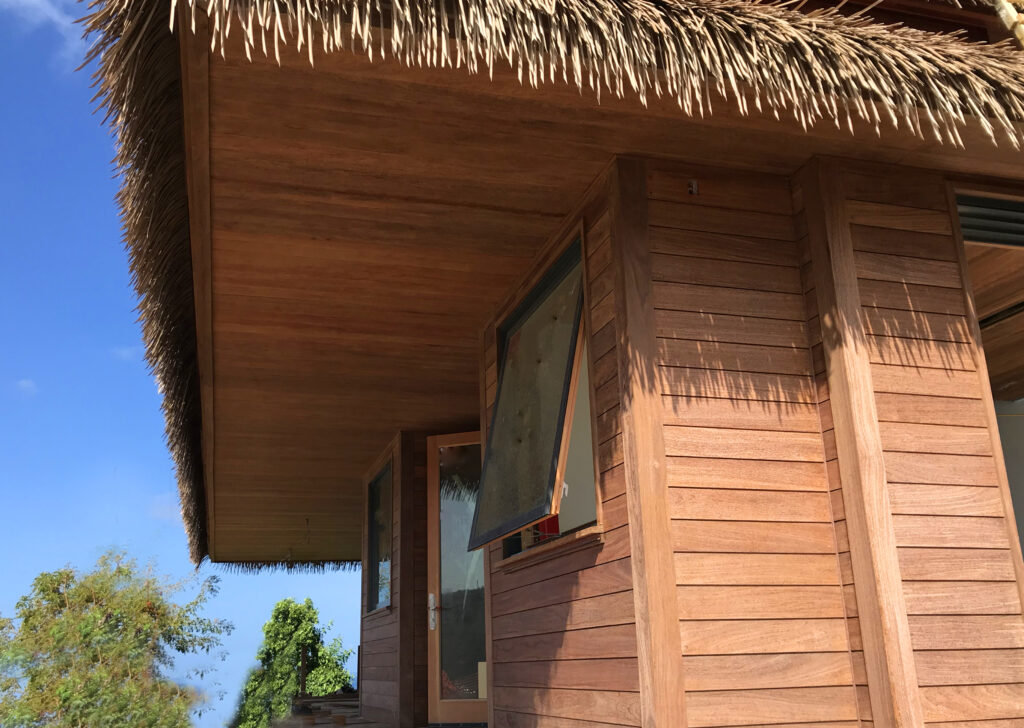
Cumaru lumber is similar to Ipe in color but has a slightly coarser grain to it. Since it is primarily used for decking, it is supplied as a surfaced on 4 sides and eased edge (S4S, E4E) product that can be grooved for hidden fasteners if desired.
The standard decking sizes are 1×4 and 1×6, though it should be noted that Cumaru is sold in slightly thicker, true 1″ or 5/4 thickness to provide greater stability. Rough sawn lumber and larger timbers are also available but only on a special order basis.
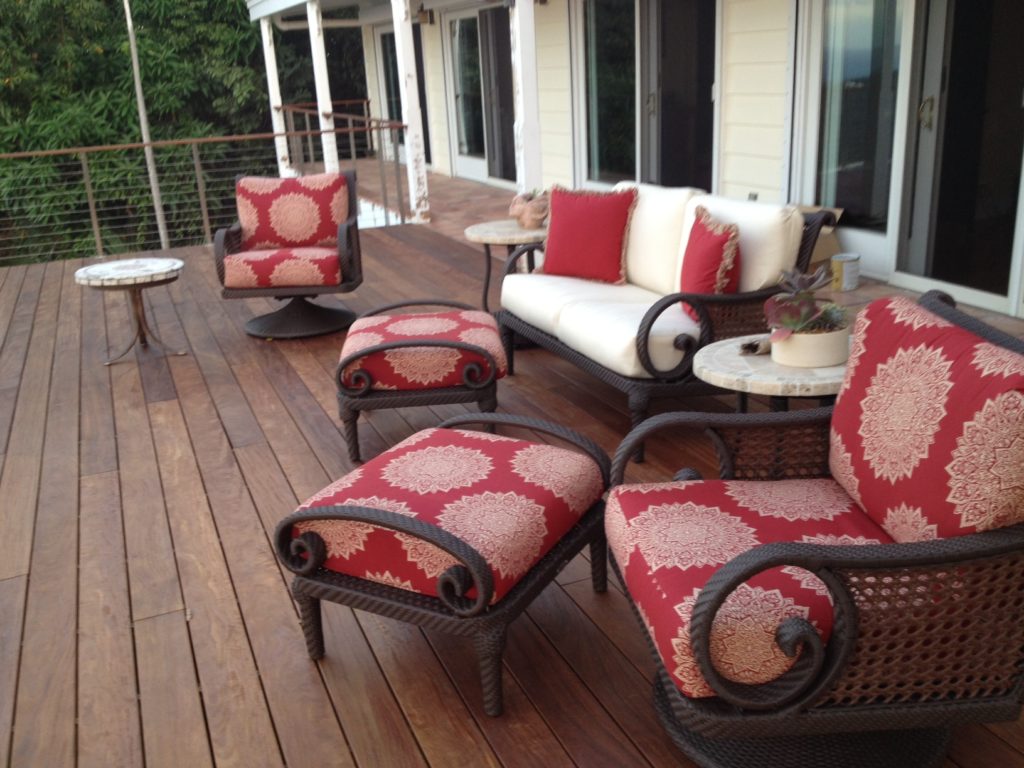
Cumaru Wood Characteristics
| Character | Green | Dry | Units |
| Bending Strength | 19295 | 27270 | psi |
| Max Crushing Strength | 9020 | 13720 | psi |
| Impact Strength | – | 39 | inches |
| Stiffness | 2690 | 3030 | 1000 psi |
| Hardness (Janka) | – | 3450 | lbs |
| Toughness | – | 265 | in-lbs |
| Specific Gravity | 0.86 | 0.90 | – |
| Weight | – | 71 | lbs/ft3 |
| Density | – | 71 | lbs/ft3 |
| Radial Shrinkage | – | 5 | % |
| Tangential Shrinkage | – | 8 | % |
| Volumetric Shrinkage | – | 12 | % |
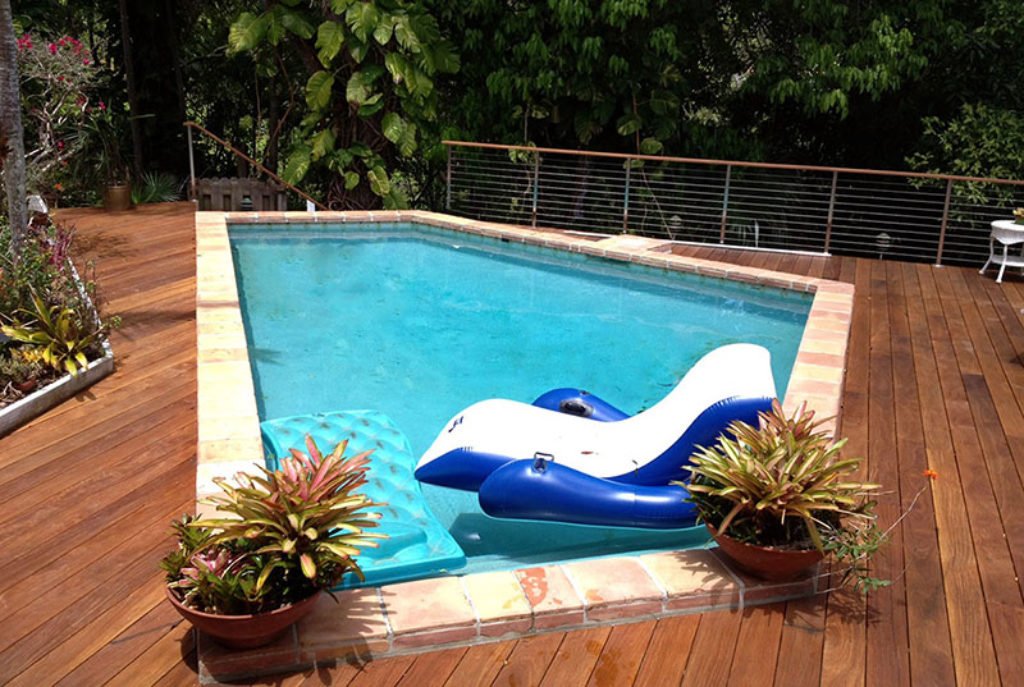
– – – – – – – – – –
People frequently search for the following relevant terms: Cumaru wood, Cumaru wood decking, Cumaru wood flooring, Cumaru engineered wood flooring, where does Cumaru wood come from, Cumaru wood siding, Brazilian Cumaru wood, Cumaru wood maintenance, Cumaru wood properties.

